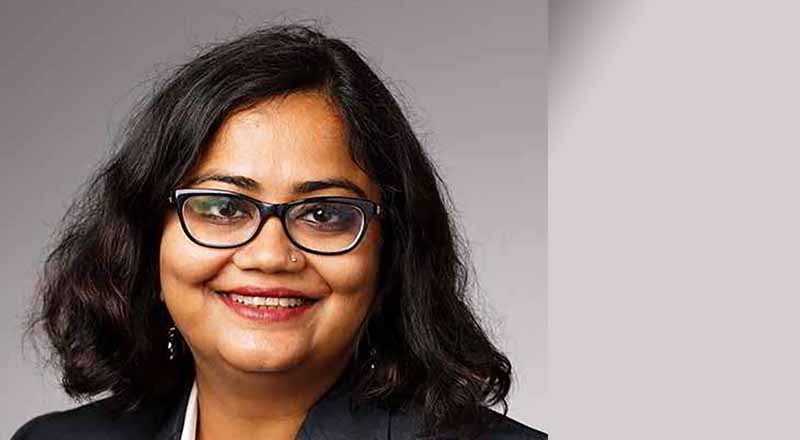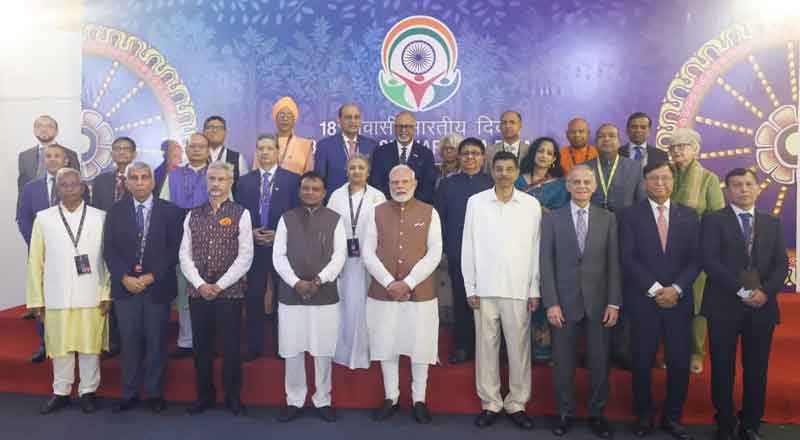HGS in association with Hinduja Hospital is working towards developing rural health and overall quality of life for thousands of disadvantaged by ensuring last mile delivery of free and quality healthcare.
Shilpa Sinha Harsh, Sr. Vice President – Global Corporate Communications, CSR and D&I
In a chat with SPO INDIA discusses about the Advanced Mobile Health Unit (AMHU), started by HGS that focuses on providing Medical services (Diagnosis and Treatment) in 10 remote village of Palghar district, Maharashtra, besides sharing the roadmap of taking this initiative beyond Maharashtra –
Could you tell us more about the mobile health bus and the kind of benefits that you are offering through it?
HGS’ CSR philosophy is ‘Work to Give’ and the company has been a firm believer in giving back to the society.
HGS’ Advanced Mobile Health Unit (AMHU) program in partnership with Hinduja Hospital started in 2017 with a view to provide state-of-the-art OPD facility to remote villages in Palghar district of Maharashtra. Presently, it serves 10 remote villages namely, Jamsar, Bhotadpada, Nyahale, Dengachimet, Sakharset, Khambala, Patilpada, Kelghar, Kortad, Colony Pada.
The AMHU facilities include free consultation, pharmacy, pathology and radiology services.
How is it helping you to address rural healthcare in Maharashtra and subsequently bettering those services?
The AMHU program has made a significant impact on the residents of the Palghar district. Before AMHU, the villagers of the Jawhar region had to travel for over 100 kms to Mumbai or Silvassa for their healthcare needs. Now with AMHU within the reach of the villagers, most of the medical needs can be addressed within their communities.
In relation to the primary health centres, AMHU is equipped with improved diagnostic facilities and medical specialists who help in not only addressing general ailments, but also help identify communicable diseases thus positively impacting overall public health in the area.
The village population in the region largely depends on seasonal employment. Most of the workmen found it economically impractical to forego a day’s work and seek medical assistance. In this context, AMHU has proved to be a viable and useful alternative to address their medical needs.
When was this initiative (AMHU) first started and what are its key offerings? Is this a brainchild of HGS?
HGS’ AMHU program in partnership with Hinduja Hospital started in 2017 with a view to provide state-of the art OPD facility to remote villages in Palghar district of Maharashtra. The facilities include free consultation, pharmacy, pathology and radiology services
No, AMHU is not a brainchild of HGS. This program is in partnership with Hinduja Hospital.
How has AMHU impacted rural healthcare and progressed from 2017 to now?
As mentioned above, AMHU has made significant impact on the rural population of the region. A large section of the population is dependent on AMHU for their healthcare needs now. On an average, AMHU treats close to 90 patients each day and 1, 300 patients per month.
Talking about the progress, from 2017 AMHU has treated 40, 567 people out of which 60% are women. Most of these people are marginal farmers and daily wage workers who cannot afford or access good healthcare.Most often treated cases in the area includeMusculoskeletal disorder, Hypertension, URTI, Skin infections and diabetes among others.
How successful has been AMHU in tending timely medical attention and direct patients to seek additional care?
We think this initiative has been fairly successful. The concept of AMHU is to delivery primary healthcare at the villagers’ disposal hence it has been able to give timely medical attention to the village population. For any additional care, if it is not for any major surgery, AMHU takes care of the primary healthcare facilities which include diagnostic facilities, medicines and consultation.
Are you planning to take this initiative beyond Maharashtra?
Presently, we’re focused on Maharashtra. We believe that there is still a lot of work to be done in the region. We are humbled as well as encouraged by the response we have received and will continue with our efforts to make quality healthcare accessible.





